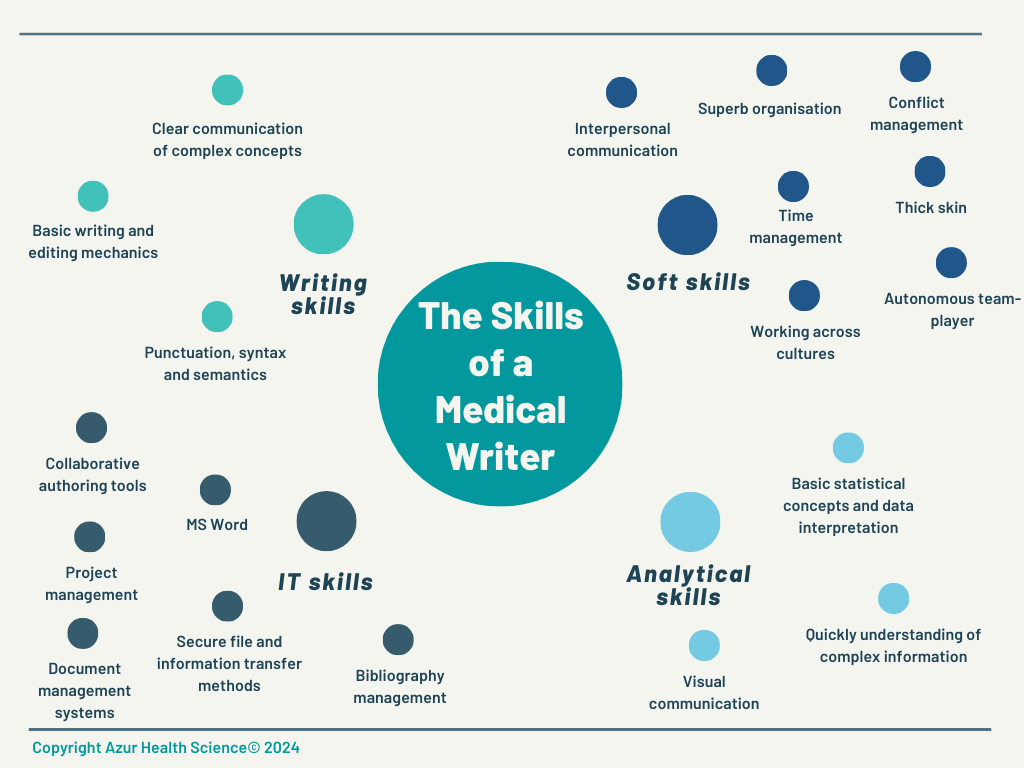
Summer: back to basics
Medical writing is a specialised field that combines expertise in both science and communication. Medical writing plays a crucial role in the healthcare and pharmaceutical industries, providing a bridge between complex scientific information and a diverse audience that includes healthcare professionals, regulatory authorities, and patients.
This Summer, we decided to take some time out to provide you with an overview of medical writing, types of medical writing available, current practices, and emerging trends shaping the future of the field.
What is Medical Writing?
Definition and Scope
Medical writing involves creating well-structured and scientifically accurate documents for the healthcare, medicine, academic and related fields. Documents can range from clinical study reports and regulatory submissions to marketing materials and educational content. Medical writers must have a solid understanding of medical science, research methodologies, and the ability to convey information clearly and accurately.
Types of Medical Writing
Medical writing can be broadly categorised into the following types:
- Regulatory Writing: Involves preparing documents required by regulatory agencies for drug and device approval processes. These include clinical trial protocols, informed consent forms, clinical study reports, and regulatory submission documents.
- Medical Communications: Focuses on creating content for healthcare professionals and the general public, including journal articles, conference presentations, and educational materials.
- Promotional Writing: Includes marketing and advertising materials for pharmaceuticals, medical devices, and other healthcare products. This type of writing must adhere to strict ethical and regulatory guidelines.
- Health Journalism: Involves writing articles, news stories, and features on medical topics for a general audience. Health journalists need to simplify complex medical information without losing accuracy.
You can find out more about these types of medical writing in our next blog post and in the European Medical Writers Association Career Guide.
Essential Skills of a Medical Writer
A medical writer must possess a blend of scientific knowledge, writing skills, and good communication. Key competencies include:
- Scientific Expertise: A deep understanding of medical and scientific concepts is crucial. Many medical writers have advanced degrees in life sciences or medical fields.
- Writing and Editing Skills: Clarity, precision, and the ability to convey complex information in an accessible manner are essential.
- Regulatory Knowledge: Familiarity with the regulatory environment and guidelines, such as those from the FDA, EMA, and ICH, is necessary for regulatory writing.
- Attention to Detail: Medical documents must be accurate and error-free, as they can have significant implications for patient safety and regulatory approval.
- Excellent communication: Fluid communication and collaboration skills are essential as medical writers always work with multifunctional teams, initiating projects, integrating conflicting feedback and ensuring that content meets the needs of all stakeholders involved.
This is best described in one of our previous blog posts:

Conclusions
Medical writing is an essential and dynamic field that continues to evolve with advancements in medicine, technology, and communication. As the healthcare landscape becomes more complex, the role of medical writers in facilitating clear and accurate communication will be more critical than ever. New entrants to the field that come prepared and informed, will be much needed in the future marketplace. Check out some of our training courses available this summer.
Stay tuned for the next installment: current trends and future prospects and innovations in medical writing.

